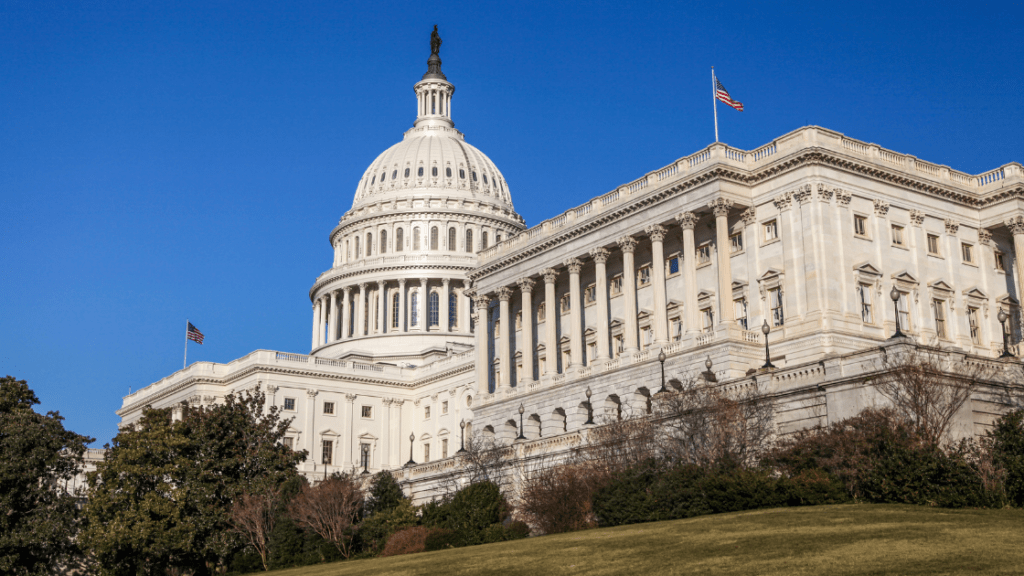WASHINGTON — The Coalition for a Prosperous America’s (CPA) CEO, Michael Stumo, today testified before the House Homeland Security Subcommittee on Oversight, Investigations, and Accountability in a hearing titled, “Exploitation And Enforcement: Evaluating the Department of Homeland Security’s Efforts to Counter Uyghur Forced Labor.” Stumo’s testimony focused on the de minimis, an import loophole non-market economies like China exploit to ship hundreds of millions of packages valued under $800 into the United States without inspection, information disclosure, or duty payment.
According to U.S. Customs and Border Protection (CBP), imports using the de minimis loophole include “high-risk shipments that may contain narcotics, merchandise that pose a risk to public safety, counterfeits, or other contraband.” CBP recently stated that the agency “continues to see bad actors seeking to exploit the increasing volumes of de minimis shipments to transit illicit goods, including fentanyl and the precursors and paraphernalia used to manufacture it.”
According to the State Department, “Illicit fentanyl shipments directly shipped to the United States via air cargo, international mail, and express consignment are high-purity, low-weight shipments destined for criminal groups or individuals in the United States. Most originate in China with suppliers who use international mail consolidators to mask the origin of the shipments.”
“[The Committee is] rightly worried about narcotics coming through the southern border. But I will focus upon the forced labor goods, narcotics and contraband that comes into our mailboxes through the de minimis loophole,” testified Michael Stumo, CEO of CPA. “CBP said this regarding de minimis: ‘Illicit opioids can now be purchased online from the comfort of one’s home. Opioids entering the country through express consignment or international mail have a substantially higher purity level than the opioids entering along the Southwest Border.’”
“The de minimis loophole makes a mockery of the Uyghur Forced Labor Prevention Act (UFLPA),” continued Stumo. “China’s Shein and Temu have built their enormous businesses around de minimis. Their fast fashion goods are rife with forced labor cotton and other materials but not inspected. The sheer volume of Shein and Temu goods are forcing U.S. stores and textile companies to close or lay off employees, right now.”
“De minimis should be ended or dramatically restricted. China should be barred. The Biden administration can fix this with executive action. And Congress can do so with legislation.”
Read Stumo’s oral testimony here. His written testimony, which CPA Trade Counsel Chuck Benoit helped prepare, is here.
Stumo previously testified before the House Ways and Means Subcommittee on Trade where he focused on the de minimis loophole. In April, human rights organizations testified before the Congressional-Executive Commission on China that the de minimis loophole is being used to skirt the Uyghur Forced Labor Prevention Act (UFLPA). “The de minimis shipping provision is being used to circumvent UFLPA,” Anasuya Syam, Human Rights and Trade Policy Director for the Human Trafficking Legal Center, told the Commission.
Earlier this year, CPA’s Economics Team released a new analysis that estimates de minimis imports from China hit $188 billion last year. The uncounted imports increase the actual 2022 U.S. goods trade deficit by 16% from $1.19 trillion to $1.38 trillion, representing some 8.3 million lost U.S. jobs. Last November, CPA urged CBP to issue a public correction of de minimis shipments after it released false government statistics.
There are multiple bipartisan bills before Congress that would serve as an urgent tourniquet by prohibiting de minimis shipments directly from China. U.S. Representatives Earl Blumenauer (D-OR) and Neal Dunn (R-FL) were joined by U.S. Senators Sherrod Brown (D-OH) and Marco Rubio (R-FL) in introducing the Import Security and Fairness Act to stop China and Russia from exploiting the de minimis threshold and require Customs and Border Protection (CBP) to collect more information on de minimis shipments. This bill was included in the trade title of the House China bill that passed in February 2022.
Senators Bill Cassidy, (R-LA), Tammy Baldwin (D-WI) and JD Vance (R-OH) introduced the De Minimis Reciprocity Act of 2023 which will limit the damage from the increasingly notorious de minimis loophole that enables foreign vendors anywhere in the world to ship into the United States without submitting to basic customs declarations or paying the duties U.S. brick-and-mortar retailers are required to pay.













